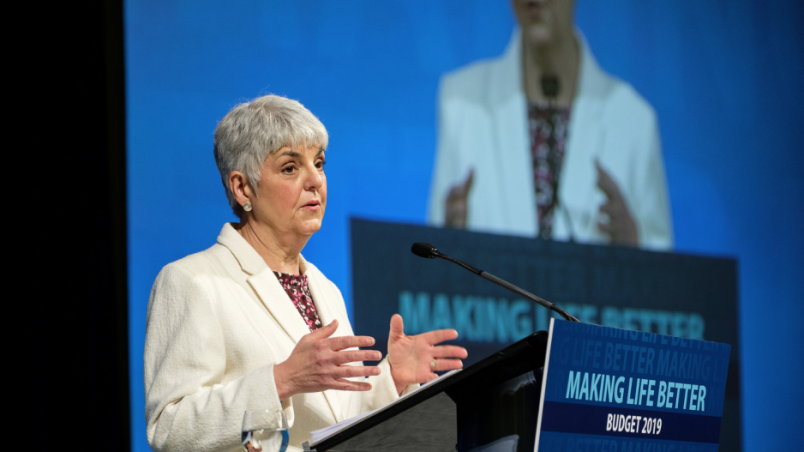The B.C. government announced it will grant $100 million to 26 governments near Kitimat and along the Coastal GasLink pipeline corridor to assist with current and future infrastructure needs.
The Northern Capital and Planning Grant was announced with the 2019 budget, which will will go to four regional districts (Fraser Fort George, Bulkley Nechako, Kitimat Stikine and North Coast) and their 22 municipalities.
"The rich resources and hard-working people of the Northwest have long contributed more than their fair share to the prosperity of our province," Premier John Horgan said in a statement.
"Unfortunately the benefits of success have been slow to flow back to the region, leaving communities with aging infrastructure that does not meet their needs or the needs of industry."
The Northwest B.C. Resource Benefits Alliance has been pushing for the grant, which is similar to the Peace River Agreement that compensates local governments in the Northeast for industrial development outside municipal boundaries.
The 22 municipalities will receive a total of $83.7 million. The four regional districts will receive $16.3 million.
"Each community in the North has struggled for years to improve and maintain infrastructure, services and day-to-day operations that meet the desired liveability outcomes for local residents, small businesses and industries," said Prince Rupert Mayor Lee Brain.
"The province has listened to our concerns by providing this financial injection, as it will help all our communities begin to tackle those challenges as our region becomes a globally significant national trade corridor."
The new grant is one of a few measures aimed directly at supporting industry and businesses in a budget that features historic infrastructure spending and a plan to deliver more affordable childcare.
The business-focused measures include a number of changes to the province’s small business venture capital tax credit program, which will take effect this week, such as raising the tax credit threshold for individuals to $120,000 from $60,000, doubling the $5-million tax credit threshold for corporations and including advanced commercialization as an eligible activity in the Greater Vancouver and Greater Victoria regions.
Part of the government’s $902 million in funding for CleanBC initiatives includes $168 million over three years to help large industrial operations reduce their greenhouse gas emissions. B.C. is also following through on its earlier commitment to eliminate provincial sales tax (PST) on electricity for industrial operations.
Funds for forest rehabilitation – $13 million – and the previously announced extension of mining tax credits were also included in Budget 2019.
While the budget features no tax cuts nor much language around the issue of competitiveness, it does account for the tax competitiveness measures introduced by the Canadian government in its fall fiscal update.
Capital investment tax write-offs in assets such as buildings, equipment and machinery are expected to cost the B.C. government $800 million in revenue over the next three years.
The province says the effect of those changes, along with LNG Canada’s investment into B.C., are expected to result in an average 4.3% growth in annual tax revenue.
— Haley Woodwin, Business in Vancouver (with AHN files)



